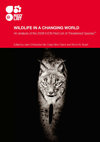
-
 Anglický jazyk
Anglický jazyk
HUMAN VIROLOGY
Autor: Paulo Sérgio Da Paz Silva Filho
Viruses (from Latin virus, "poison" or "toxin") are small infectious agents, most of them 20-300nm in diameter. Viruses are microorganisms that cause various diseases, are considered obligate intracellular parasites, are acellular organisms, have no metabolism... Viac o knihe
Na objednávku, dodanie 2-4 týždne
71.19 €
bežná cena: 79.10 €
O knihe
Viruses (from Latin virus, "poison" or "toxin") are small infectious agents, most of them 20-300nm in diameter. Viruses are microorganisms that cause various diseases, are considered obligate intracellular parasites, are acellular organisms, have no metabolism of their own, and have no organelles. When they parasitize a cell, they induce the production of viral genetic material and proteins, controlling the cellular metabolism. Viruses are acellular organisms, and their structure is composed of proteins and nucleic acid. The protein forms an envelope called capsid, which is formed by several capsomeres and can be used as a way of classifying viruses. According to the viral symmetry, we can classify them as icosahedral, helical, and complex.When parasitizing a human cell, viruses can trigger various diseases (viruses). These can be easy to treat, as is the case with a cold, or have no cure, as is the case with AIDS. Examples of viral diseases are dengue, hepatitis, AIDS, rabies, chickenpox, smallpox, rubella, and Ebola,
- Vydavateľstvo: Our Knowledge Publishing
- Rok vydania: 2022
- Formát: Paperback
- Rozmer: 220 x 150 mm
- Jazyk: Anglický jazyk
- ISBN: 9786204511382












